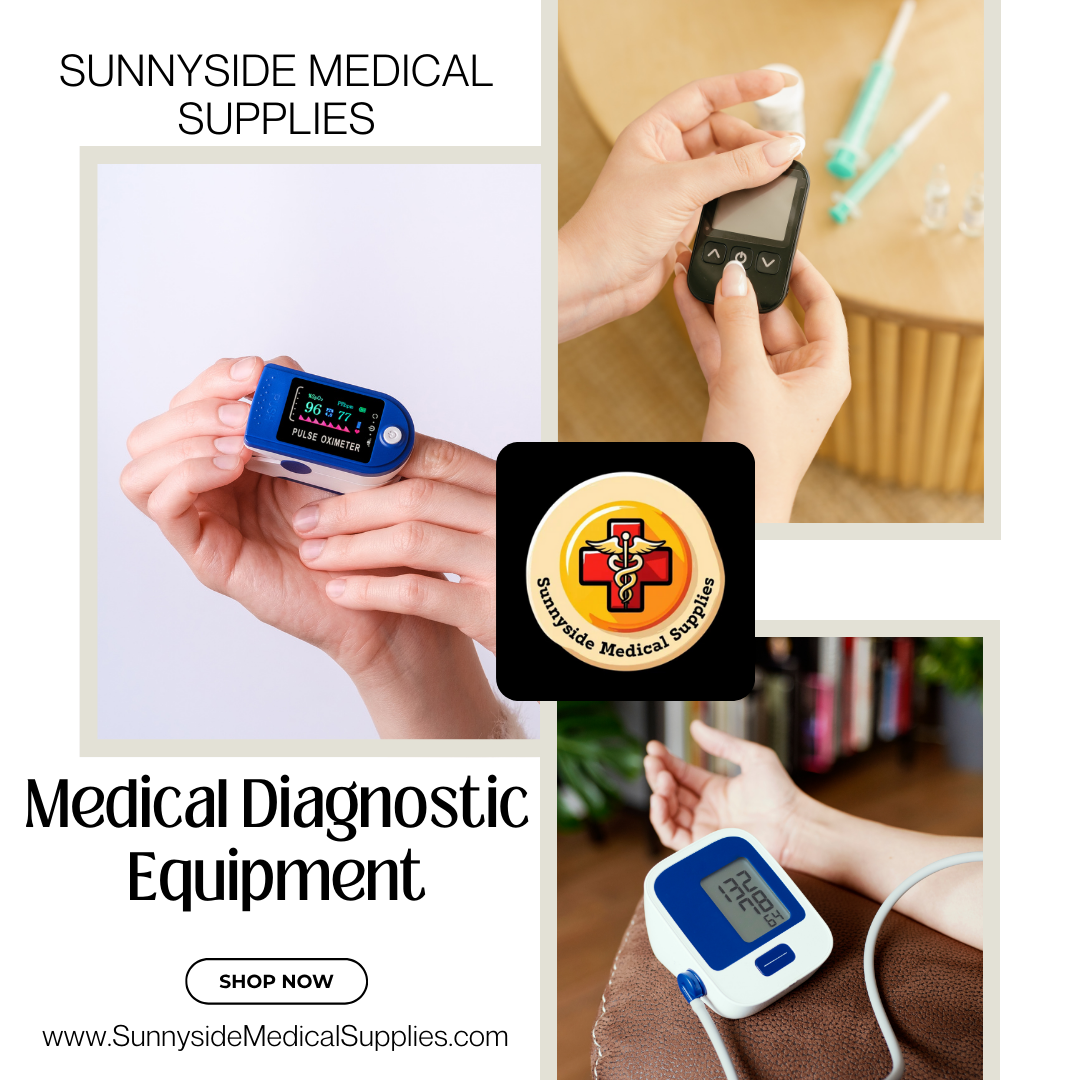
At-Home Medical Diagnostic Equipment: Bringing Health Monitoring into Everyday Life
Healthcare is no longer limited to clinics and hospitals. Today, many people are turning to at-home medical diagnostic equipment to stay on top of their health, track vital signs, and manage chronic conditions from the comfort of home. These tools are designed to make health monitoring accessible, accurate, and convenient—giving individuals greater control over their wellness and offering peace of mind for families.
Having diagnostic equipment at home doesn’t just save time. It allows people to catch potential health issues early, manage ongoing conditions with confidence, and share reliable information with healthcare providers when needed. From simple thermometers to advanced digital monitors, these devices are transforming how we think about personal healthcare.
Why At-Home Diagnostic Equipment Matters
The value of at-home diagnostic tools goes beyond convenience. Regular monitoring can help detect patterns or warning signs that may otherwise go unnoticed. For individuals managing conditions such as hypertension, diabetes, or heart disease, having the right equipment at home can mean the difference between proactive care and emergency intervention.
Even for healthy individuals, routine checks offer reassurance and help establish baselines for personal health. With modern technology, many devices now sync with smartphones or apps, making it easy to track data over time and share updates with healthcare professionals during appointments.
Common Types of At-Home Diagnostic Equipment
1. Thermometers
A staple in every household, thermometers are essential for detecting fever and monitoring recovery during illness. Digital thermometers provide quick and accurate readings, while infrared forehead and ear thermometers are especially convenient for children.
2. Blood Pressure Monitors
For anyone managing high blood pressure, an at-home monitor is invaluable. Digital blood pressure cuffs make it simple to check readings regularly, helping individuals understand how lifestyle, diet, and medications affect their numbers. Consistent monitoring reduces the risk of complications and provides essential information for doctors.
3. Blood Glucose Meters
Diabetes management depends heavily on accurate glucose tracking. Compact blood glucose meters allow individuals to measure their blood sugar at different times of the day, ensuring better control and reducing risks associated with spikes or drops. Some devices even connect to apps for easier record-keeping.
4. Pulse Oximeters
Pulse oximeters measure oxygen levels in the blood and are especially useful for individuals with respiratory conditions such as asthma, COPD, or sleep apnea. These small, clip-on devices provide fast readings and can alert users to changes in oxygen saturation that may require medical attention.
5. Cholesterol and Lipid Test Kits
At-home cholesterol test kits make it possible to monitor heart health without waiting for a doctor’s appointment. While professional lab tests are still the gold standard, these kits provide a convenient way to track general trends and stay informed about cardiovascular wellness.
6. ECG Monitors
Portable ECG monitors are becoming increasingly popular for people with heart conditions. These devices can track heart rhythm and detect irregularities, offering critical information to both users and their doctors. Some models are small enough to fit in a pocket and connect to a smartphone for easy use.
7. Urinary Tract Infection (UTI) and Other Rapid Test Kits
Rapid test kits for conditions like UTIs or even COVID-19 give immediate answers, helping individuals decide whether to seek further medical care. These tools are especially helpful in preventing delays in treatment.
The Benefits of At-Home Testing
-
Convenience: Immediate access to testing without scheduling appointments.
-
Early Detection: Identifying changes in health before they become serious.
-
Better Communication with Doctors: Sharing accurate, real-time data.
-
Cost Savings: Reducing unnecessary office visits or emergency care.
-
Empowerment: Encouraging individuals to take an active role in their health.
Building a Healthier Future at Home
At-home diagnostic equipment is more than a trend—it’s becoming an essential part of everyday healthcare. Whether you’re managing a chronic condition, caring for a loved one, or simply staying proactive about wellness, these tools make it possible to monitor health with confidence.
By investing in reliable diagnostic equipment, families can create a safer, more informed environment where health isn’t just managed in emergencies but maintained every day. The goal is simple: to bring healthcare closer to home, where it belongs.
